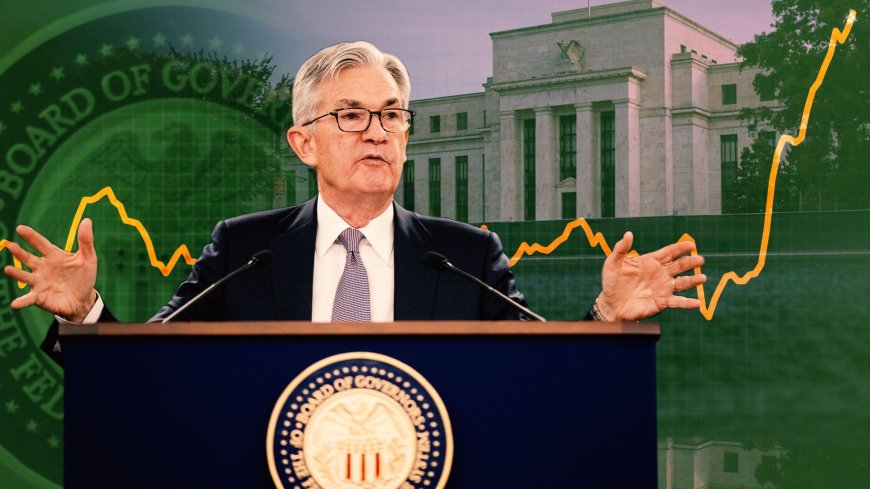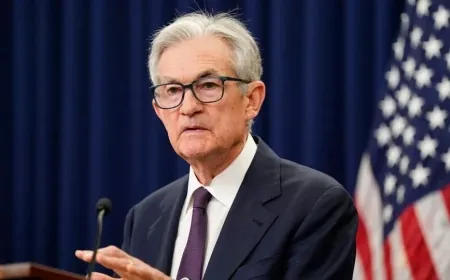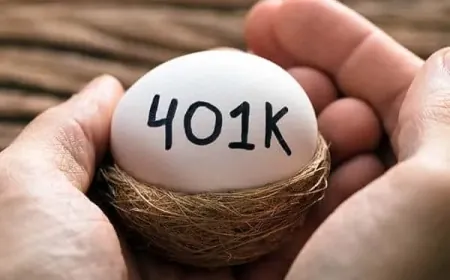US Federal Reserve's Covert Stress Testing and Bidenomics Revealed
Federal Reserve's secret stress testing and Bidenomics: Revealing insights into the economy's resilience and President Biden's economic vision.

Jerome Powell, the Chair of the Federal Reserve, provided rare insights into a confidential tool utilized by the central bank during his appearance at the European Central Bank conference in Portugal. Breaking away from his usual reserved demeanor, Powell shed light on the secretive Teal Book.
During each policy meeting, the Fed's staff generates alternative simulations—usually ranging from six to eight—that serve as stress tests for the economy. Powell stressed the significance of these simulations, highlighting the importance of avoiding an excessive focus on a single path due to the inherent difficulty in predicting economic outcomes.
These stress tests explore the potential impact on the economy under various nightmarish scenarios, including an oil crisis, heightened US-China tensions, or the outbreak of another pandemic. While the Federal Reserve conducts regular stress tests on major banks, it also conducts clandestine stress tests on its own policy decisions. These tests assess the viability of interest rate hikes in the face of diverse economic, geopolitical, and external factors, playing a crucial role in shaping future decisions made by the Fed.
Although the specifics of these stress tests remain classified, the discussions surrounding them carry immense weight within the central bank. By simulating and analyzing crisis responses, the Teal Book, overseen by Stacey Tevlin, plays a critical role in the process. Tevlin acknowledged that the simulations involve a considerable degree of judgment since human behavior may not align precisely with past events.
One notable example of the Teal Book's impact was witnessed during the peak of the COVID-19 pandemic. The Fed's staff provided policymakers with forecasts pertaining to the virus's trajectory and vaccine availability, offering valuable insights to guide decision-making processes.
While the details of these stress tests and the Teal Book remain undisclosed for several years, their influence on shaping the Fed's policy decisions cannot be underestimated. They provide invaluable perspectives on a wide range of potential shocks, encompassing both domestic financial crises and external events like Middle East conflicts leading to oil crises.
According to Joe Brusuelas, RSM's chief economist, the systematic approach undertaken by the central bank plays a vital role in facilitating innovative policy responses during crises. Nevertheless, if these stress tests were made public in real-time, their potential impact on market stability could be substantial, as highlighted by Bloomberg.
In parallel news, President Joe Biden unveiled his economic vision, commonly referred to as Bidenomics, during a speech delivered in Chicago. This approach aims to foster economic growth by prioritizing the middle class and implementing a bottom-up strategy, deviating from the traditional trickle-down economics associated with Reaganomics. Biden emphasized the imperative of restoring the American dream, describing Bidenomics as a pathway to achieving this goal.
The performance of Bidenomics has garnered mixed reviews, as it seeks to address the significant challenges confronting the economy. High inflation rates have resulted in unaffordable housing, compelling the Federal Reserve to implement a series of interest rate hikes—ten consecutive increases—to combat this issue. The tight labor market has posed ongoing challenges for small businesses in terms of hiring, while larger corporations have downsized their workforce in anticipation of a potential recession.
However, Bidenomics has also yielded positive outcomes. The labor market has witnessed robust growth, affording workers the opportunity to switch jobs in pursuit of better wages and increased flexibility, including remote work options. Additionally, the provision of financial support through stimulus checks and temporary relief from student loan payments during the COVID-19 pandemic has provided substantial relief to many Americans.
In an unrelated viral trend, McDonald's found unexpected success with its Grimace shake on the popular social media platform TikTok. Users have taken to the app, creating amusing videos in which they pretend to have been "killed" by consuming the purple beverage, often pouring it over themselves in comedic fashion. While some may perceive this trend negatively, analysts argue that it reflects Gen Z's unique way of engaging with brands and showcasing their affinity for McDonald's. The company has embraced the trend, as evidenced by a tweet from Grimace himself.
As the Federal Reserve continues its covert stress testing, and Bidenomics charts the course for economic growth, these developments are set to shape the financial landscape and public sentiment in the coming months. The full impact and outcomes of these endeavors remain to be seen, providing a backdrop of intrigue and anticipation for stakeholders across various sectors.
Also Read: Central Banks Signal Continued Rate Hikes, Challenging Wall Street's Sentiment































































